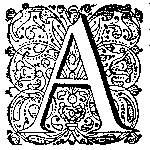Southern-Netherlandish Observations and Knowledge Production of Naturalia on the Seas: The Writings of Michael de Febure (1721)
DOI:
https://doi.org/10.18352/emlc.113Keywords:
Ostend Company, maritime history, naturalia, shipboard knowledge, Michael de FebureAbstract
Just as was the case for other European sea voyages, maritime expeditions from the Southern-Netherlandish port of Ostend to Asia presented opportunities for the bringing of naturalia to Europe, and with it the production of knowledge on the natural world in the early eighteenth century. While this exchange took place alongside the more commercial aspect of these expeditions, and mostly comprised gift objects being brought back for the curiosity cabinets of Austrian-Netherlandish dignitaries, the journal of chaplain Michael de Febure – sailing in 1721 on the ship Sint-Pieter from the port of Ostend to the Indian Malabar coast – presents a different type of the production of natural historical knowledge. This source offers us a unique insight into the ways in which marine life and naturalia were approached from a shipboard perspective. This fits within an ecological perspective on the ways in which the sea and the shipboard formed a space for knowledge production on naturalia for Southern Netherlandish sailors and sea-going passengers.
Downloads

Published
Issue
Section
License
Copyright (c) 2019 Wim de Winter

This work is licensed under a Creative Commons Attribution-NonCommercial 4.0 International License.





